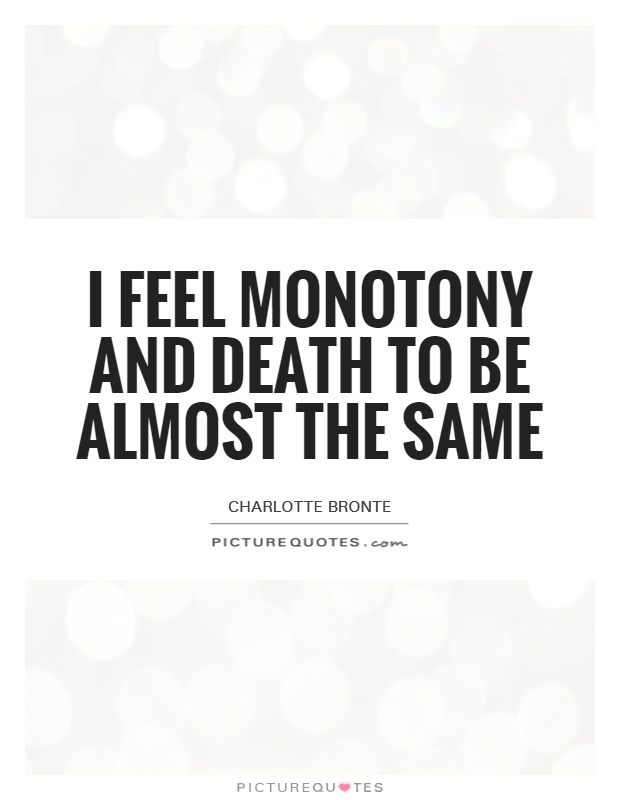I feel monotony and death to be almost the same

I feel monotony and death to be almost the same
Charlotte Bronte, the renowned author of the classic novel "Jane Eyre," was no stranger to the themes of monotony and death in her works. In her writing, she often explored the idea of the mundane and repetitive nature of life, as well as the inevitability of death. It is no surprise then that she once wrote, "I feel monotony and death to be almost the same."Bronte's own life was marked by tragedy and loss, with the deaths of her mother and two older sisters at a young age. These experiences undoubtedly shaped her views on mortality and the monotony of everyday existence. In her novels, she often depicted characters who were trapped in monotonous routines or stifling social conventions, longing for something more meaningful or transcendent.
In "Jane Eyre," the titular character struggles against the constraints of her society and the monotony of her life as a governess. She yearns for passion, adventure, and true love, but is constantly reminded of her lowly status and limited opportunities. For Jane, the prospect of a life devoid of excitement or fulfillment is akin to a slow death of the spirit.
Similarly, in "Villette," Bronte explores the theme of monotony and death through the character of Lucy Snowe, a young woman who finds herself adrift in a foreign land, teaching at a girls' school. Lucy's life is marked by routine and isolation, and she often feels as though she is merely going through the motions of existence. The monotony of her days weighs heavily on her, leading her to question the purpose of her life and the inevitability of her own mortality.












 Friendship Quotes
Friendship Quotes Love Quotes
Love Quotes Life Quotes
Life Quotes Funny Quotes
Funny Quotes Motivational Quotes
Motivational Quotes Inspirational Quotes
Inspirational Quotes